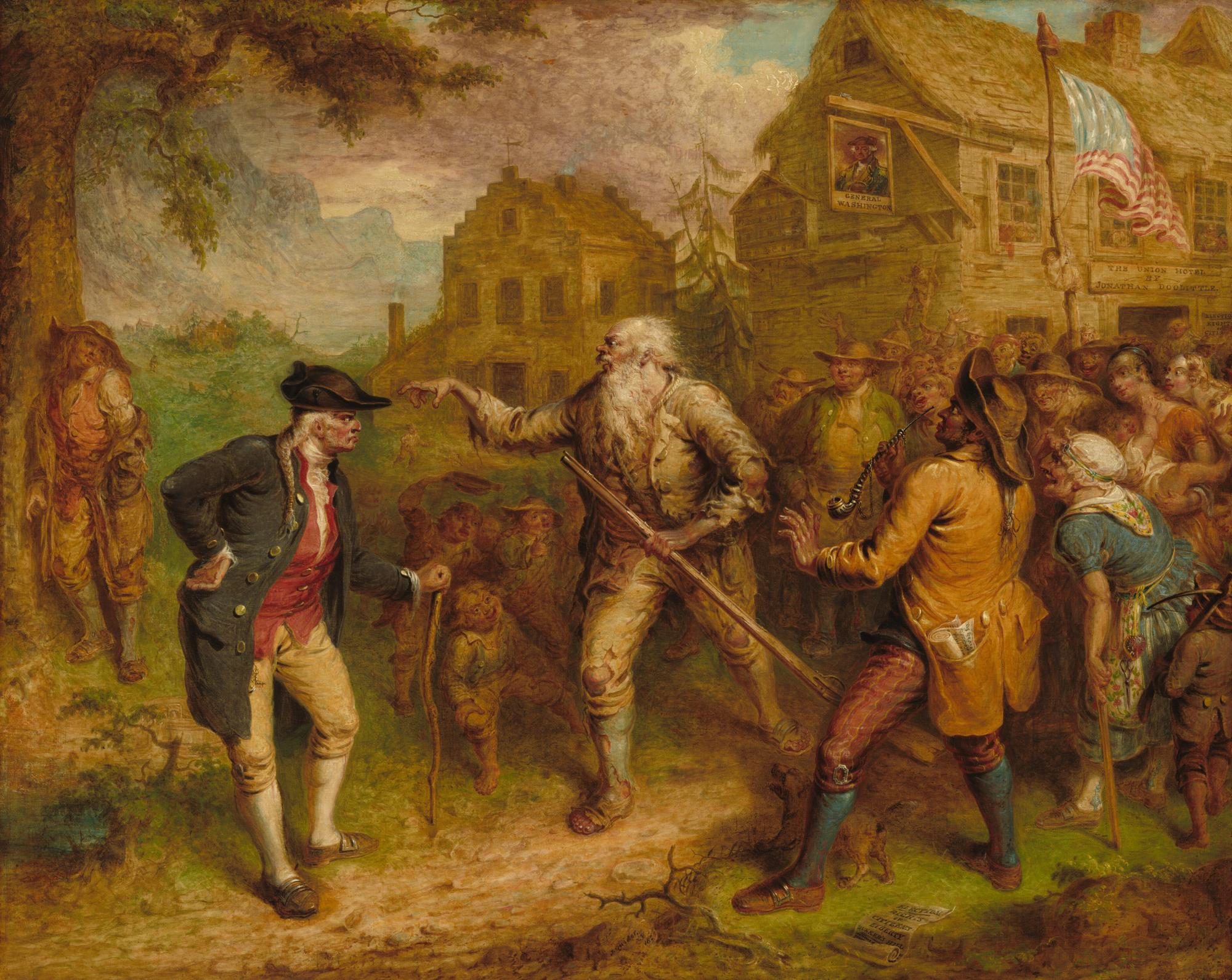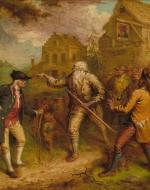Created by Colin Schroyer on Mon, 03/18/2024 - 18:09
Description:
Following the establishment of colonies and settlements in America, tensions rapidly grew between the British and the American colonists, leading to the American Revolutionary War. Further context is described in the Encyclopedia Britannica, where it says, "The war followed more than a decade of growing estrangement between the British crown and a large and influential segment of its North American colonies" ("American Revolution"). This war resulted in the formation of a whole new, independent country, the United States of America, which operated under a democratic system free from its monarchical roots. However, what if one were not troubled by politics and global affairs? What would the Revolutionary War mean to them? Well, this question can be answered through the timeless tale of "Rip Van Winkle" by Washington Irving.
The story of a man who falls asleep in the Katskills and wakes up post-Revolutionary War, Irving's tale presents a humble, down-to-earth perspective on the events of the pivotal war; mainly, the titular character frankly does not care. Irving writes, "How that there had been a revolutionary war—that the country had thrown off the yoke of old England—and that, instead of being a subject of his Majesty George the Third, he was now a free citizen of the United States. Rip, in fact, was no politician; the changes of states and empires made but little impression on him; but there was one species of despotism under which he had long groaned, and that was—petticoat government" (Irving). From Rip Van Winkle's perspective, very little has changed in regard to his daily life, so why should be he overly concerned with the outcome of this war? But what about that "petticoat government" he seems concerned over? Well, simply put, that refers to a system controlled by women - in other words, his wife. Van Winkle is more joyed at the death of his wife (and the end of her nagging) than his separation from the grasp of a tyranical monarch.
The Painting "The Return of Rip Van Winkle" depicts his return to "modern" society after the Revolutionary War. Through the composition, placing Van Winkle and the soldier in opposition to each other through their literal facing of different directions, it shows Van Winkle's initial resistance to the progress that America has undergone during his nap. Though not a replication of this exact moment, it mirrors the sentiment expressed when Irving wrote, "His mind now misgave him; he began to doubt whether both he and the world around him were not bewitched. Surely this was his native village, which he had left but the day before." Though faced with a moment of conflict, Van Winkle ultimately resigns that things really have not changed all that much.
Rip Van Winkle reflects on the accomplishments and progress of the American Revolutionary war by asking "what good actually came of it?" To the average individual, geopolitical conflicts and affairs have little to no bearing on one's life. Despite that, massive changes were occuring, and Rip Van Winkle has to make a decision, as reflected in his attitude towards the passing of his wife. He will either arrive at "resignation to his fate, or joy at his deliverance" (Irving). Scholar Robert A. Ferguson summarizes the main theme of "Rip Van Winkle" concisely when he writes, "The task of the reader is to see the truth while understanding, enjoying, and, in the end, coping through fabrication with the merciless march of life" (542). Progress, change, and growth will occur on a macro-scale, so much so that an individual's objections will unlikely do anything to stop it. As such, one must accept the unceasing, marching beat of progress in America - even if Rip would believe that not very much has happened.
Works Cited:
Ferguson, Robert A. "Rip Van Winkle and the Generational Divide in American Culture." Early American Literature, vol. 40, no. 3, 2005, pp. 529-44. JSTOR, http://www.jstor.org/stable/25057421.
Irving, Washington. "Rip Van Winkle." COVE.
Quidor, John. "The Return of Rip Van Winkle." National Gallery of Art, National Gallery of Art, 1849, https://www.nga.gov/collection/art-object-page.1104.html. Accessed 18 Mar. 2024.
Wallace, Willard M.. "American Revolution". Encyclopedia Britannica, 19 Apr. 2024, https://www.britannica.com/event/American-Revolution. Accessed 4 May 2024.
Copyright:
Associated Place(s)
Part of Group:
Featured in Exhibit:
Artist:
- John Quidor


